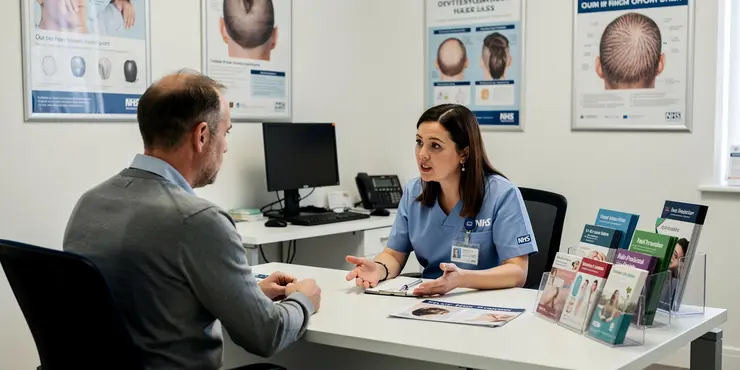
Find Help
More Items From Ergsy search
-
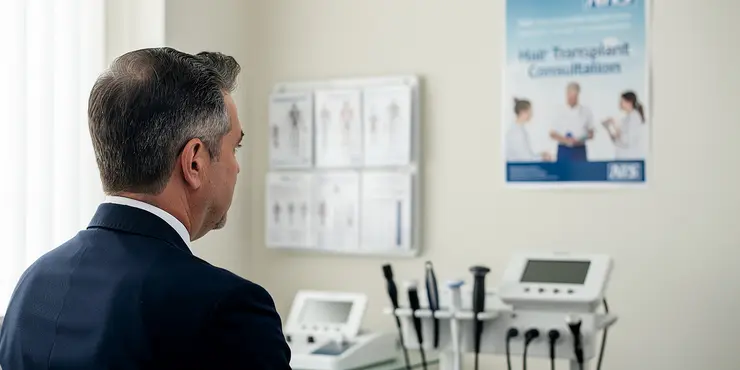
Hair Transplants in Turkey
Relevance: 100%
-
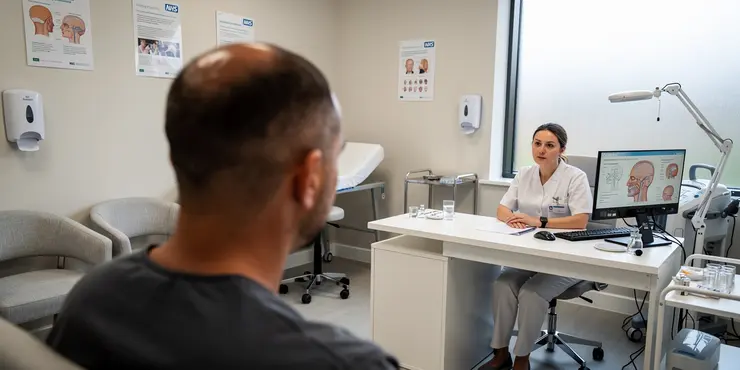
Are hair transplants in Turkey safe?
Relevance: 96%
-
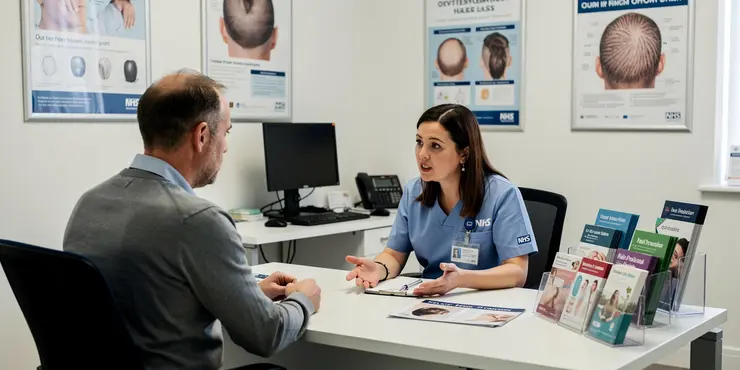
What are the risks associated with hair transplants in Turkey?
Relevance: 96%
-
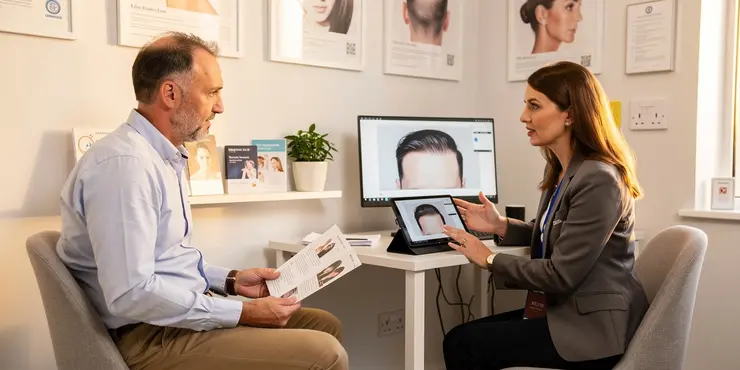
What is the cost of a hair transplant in Turkey?
Relevance: 91%
-
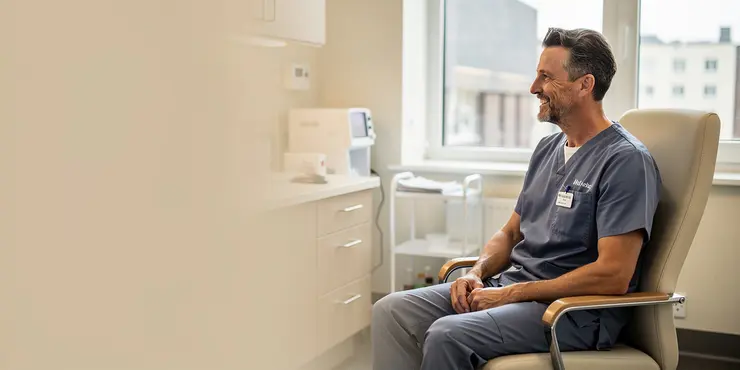
What techniques are used for hair transplants in Turkey?
Relevance: 87%
-
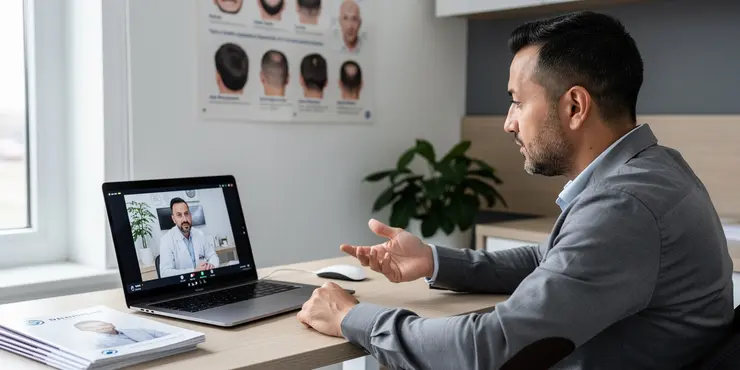
How should I prepare for a hair transplant in Turkey?
Relevance: 83%
-
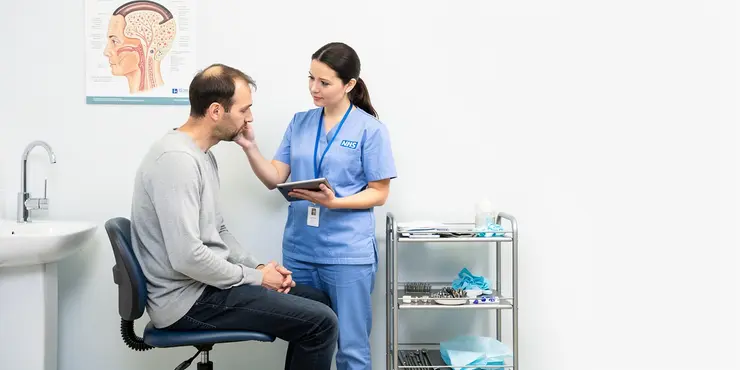
How long should I stay in Turkey for my hair transplant?
Relevance: 83%
-
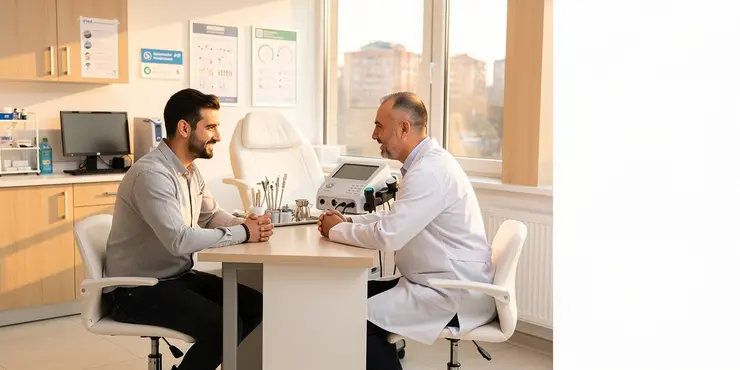
Is language a barrier for a hair transplant in Turkey?
Relevance: 81%
-

Will I need a follow-up visit after my hair transplant in Turkey?
Relevance: 78%
-
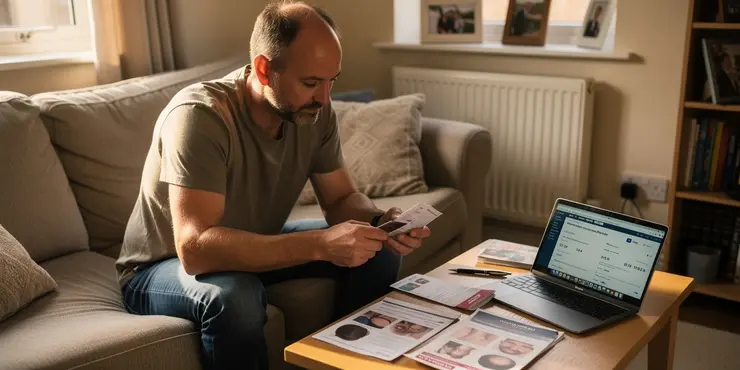
Do I need a visa for a hair transplant in Turkey?
Relevance: 65%
-

How soon can I return to work after a hair transplant in Turkey?
Relevance: 53%
-

Are there risks associated with getting Turkey Teeth?
Relevance: 44%
-

Is there a risk of hair loss with weight loss drugs?
Relevance: 40%
-
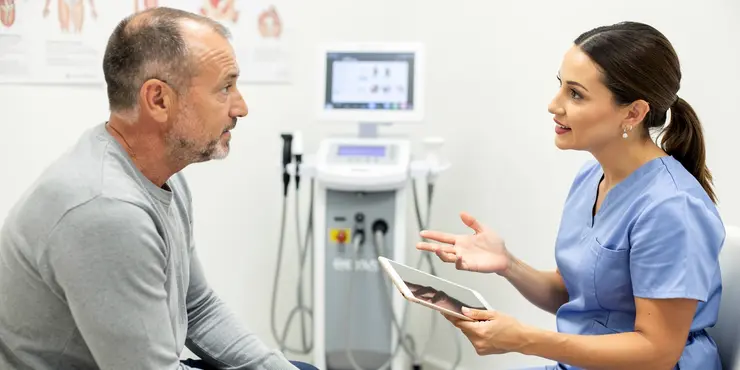
Why is Turkey a popular destination for hair transplants?
Relevance: 37%
-

What are Turkey Teeth?
Relevance: 37%
-

What are Turkey Teeth?
Relevance: 37%
-

Are Turkey Teeth the same as veneers?
Relevance: 35%
-

Why are Turkey Teeth popular?
Relevance: 35%
-

Are Turkey Teeth only for aesthetic purposes?
Relevance: 35%
-

Will my insurance cover Turkey Teeth?
Relevance: 35%
-
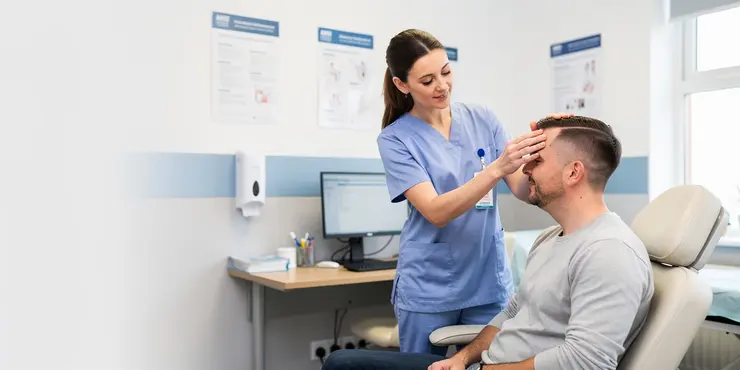
What is the recovery time after a hair transplant in Turkey?
Relevance: 35%
-
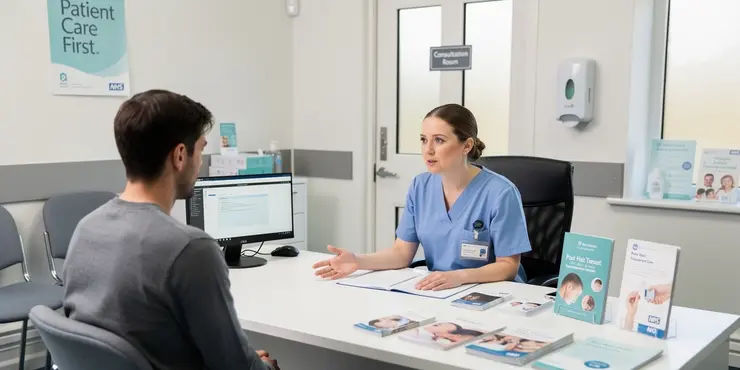
What should I expect after my hair transplant in Turkey?
Relevance: 35%
-
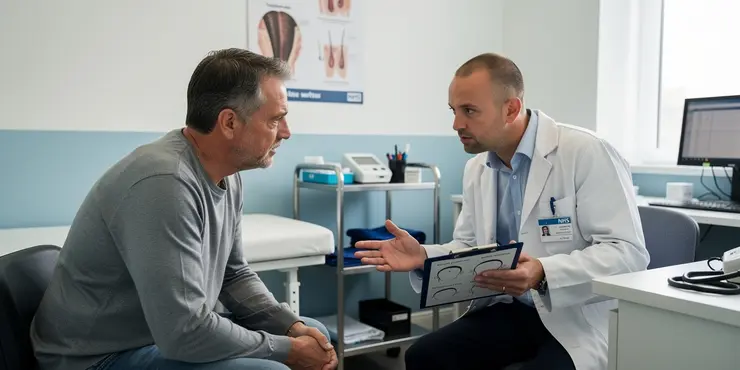
Can foreigners easily travel to Turkey for a hair transplant?
Relevance: 35%
-

How do I choose the right clinic for a hair transplant in Turkey?
Relevance: 35%
-
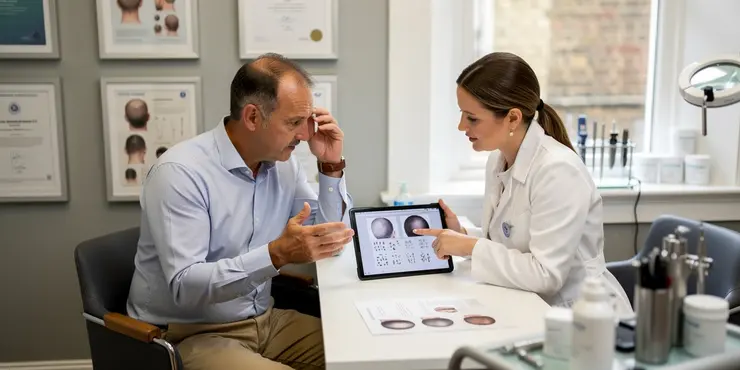
What number of grafts do I need for my hair transplant in Turkey?
Relevance: 35%
-
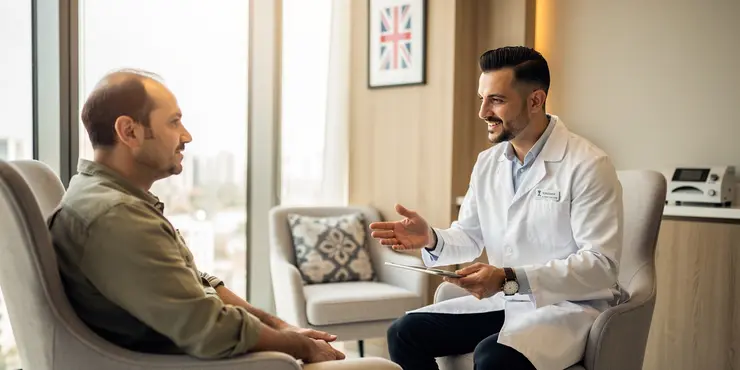
Will I feel pain during the hair transplant procedure in Turkey?
Relevance: 35%
-
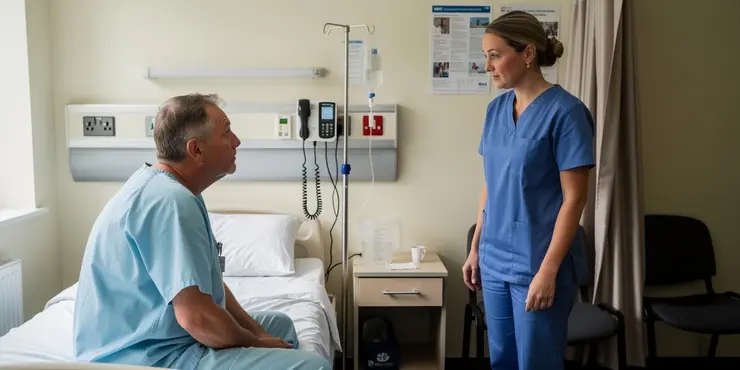
Having a kidney transplant
Relevance: 34%
-

What is the procedure for getting Turkey Teeth?
Relevance: 34%
-

How long do Turkey Teeth last?
Relevance: 33%
-

Is it safe to get dental work done in Turkey?
Relevance: 33%
-
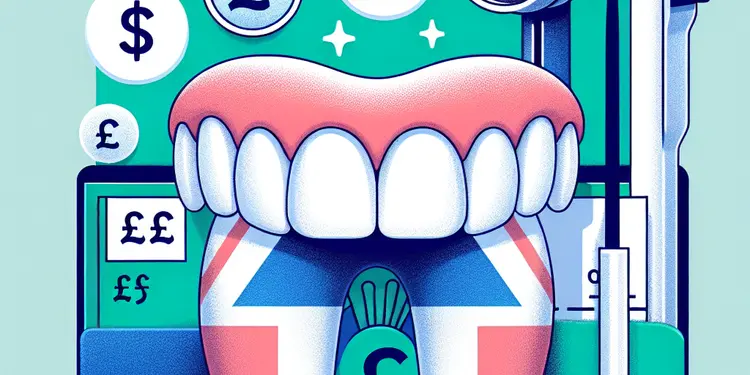
How much do Turkey Teeth cost on average?
Relevance: 33%
-
Cornea transplant - Your journey
Relevance: 33%
-
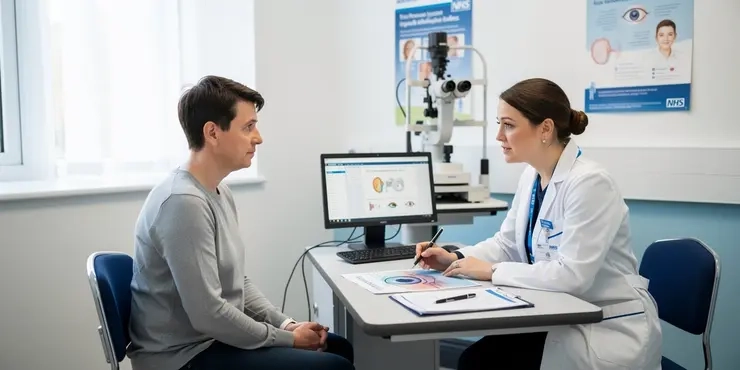
Cornea transplant patient Information
Relevance: 33%
-

How long does a hair transplant procedure take in Turkey?
Relevance: 33%
-
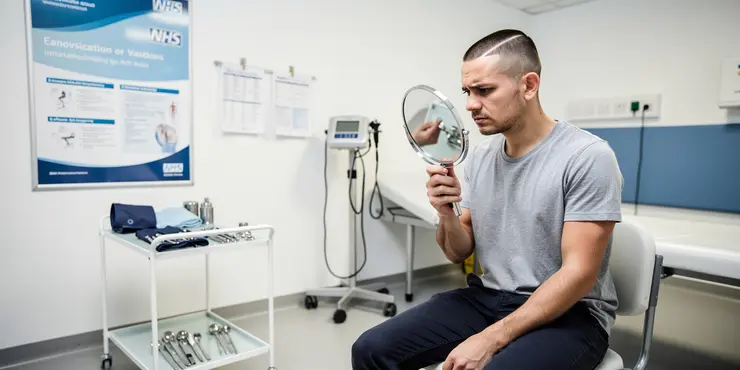
What should I do if I encounter problems after my hair transplant in Turkey?
Relevance: 33%
-
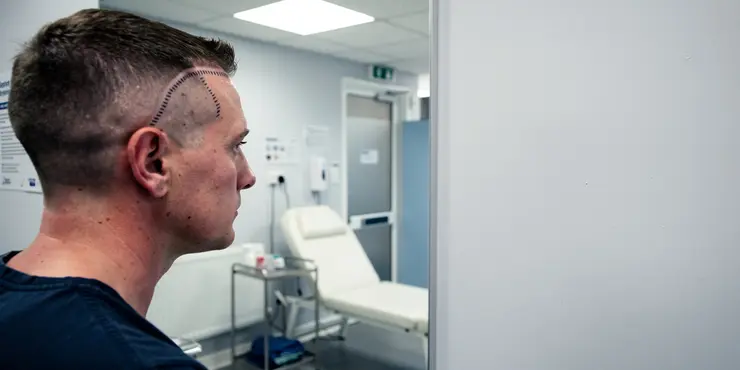
When will I see the final results of my hair transplant from Turkey?
Relevance: 33%
-

Do I need to return to Turkey for follow-up care?
Relevance: 32%
-

What should I consider before getting Turkey Teeth?
Relevance: 32%
-

What should I do if I experience problems with my Turkey Teeth?
Relevance: 32%
-

What materials are used for Turkey Teeth?
Relevance: 31%
Introduction
In recent years, Turkey has become a popular destination for hair transplant procedures, primarily due to the lower costs and promise of quality services. However, it is crucial for UK residents considering this option to be aware of the potential risks involved. Understanding these risks can help individuals make informed decisions about their hair restoration journey abroad.
Medical Risks
Hair transplant procedures, whether conducted in Turkey or elsewhere, inherently come with medical risks. Common complications can include infection at the site of the transplant, excessive scarring, and bleeding. There is also the possibility of nerve damage, leading to numbness or loss of sensation. While these risks are generally low, they may be heightened in clinics that do not adhere to international medical standards.
Quality Standards
One of the primary concerns for UK patients seeking hair transplants in Turkey is the variation in quality standards. Not all clinics in Turkey offer the same level of expertise; some may operate without proper licensing or employ underqualified staff. This can result in unsatisfactory outcomes, such as unnatural hairlines or uneven hair growth. It is crucial for potential patients to thoroughly research clinics, verify qualifications, and consult with previous patients when possible.
Post-Operative Care
Post-operative care is vital for the success of a hair transplant, and inadequate follow-up can jeopardize the results. When undergoing the procedure in a foreign country, coordinating effective aftercare can be challenging. Potential language barriers and the distance from the clinic can hinder communication, increasing the risk of complications not being addressed promptly. UK patients should ensure that a comprehensive aftercare plan is in place before committing to treatment.
Legal and Ethical Issues
Legal protection and recourse may be limited for individuals undergoing medical procedures abroad. In the event of malpractice or unsatisfactory results, pursuing legal action can be complicated, time-consuming, and expensive. Turkey’s medical tourism industry is not uniformly regulated, which can leave patients vulnerable to unethical practices or misleading advertising.
Conclusion
While the allure of affordable hair transplants in Turkey is strong, UK residents must weigh these benefits against the associated risks. Thorough research, careful selection of clinics, and ensuring robust post-operative care are essential steps for anyone considering this option. Being fully aware of potential challenges can help mitigate risks and contribute to a successful and satisfying hair transplant experience.
Introduction
In recent years, many people have gone to Turkey to get hair transplants. This is because it costs less money and they promise good service. But, if you live in the UK and think about doing this, you should know about the risks. Knowing the risks can help you make good choices about getting your hair fixed in another country.
Medical Risks
Getting a hair transplant can have risks. This is true whether you go to Turkey or stay at home. Some common problems are infections, bad scars, and bleeding where you get the transplant. Sometimes, nerves can be hurt, causing numbness. These problems are usually rare, but they can happen more if the clinic does not follow good medical rules.
Quality Standards
People from the UK worry about how good the clinics are in Turkey. Not all clinics are the same. Some clinics do not have the right licenses or use staff who are not fully trained. This can mean the hair might not look natural or grow unevenly. Before you choose a clinic, research it well. Check qualifications and talk to people who have been there if you can.
Post-Operative Care
Taking care of your hair after the operation is very important. If not done well, it can ruin your results. When you do this in another country, it might be hard to get good care afterward. Language differences and being far away from the clinic can make it hard to talk if there are problems. Make sure you know how you will get care after the surgery before you start.
Legal and Ethical Issues
It might be hard to take legal action if something goes wrong with surgery done abroad. If the results are not good, legal cases are difficult and can cost a lot of time and money. The medical tourism industry in Turkey is not the same everywhere, which can mean risks of unfair practices or wrong advertising.
Conclusion
Hair transplants in Turkey can be cheaper, but UK residents need to think about the risks too. Research well, pick the right clinic, and have a good plan for aftercare. Knowing the challenges can help you avoid problems and have a good hair transplant experience.
Frequently Asked Questions
What are the common risks of hair transplants in Turkey?
Common risks include infection, scarring, poor hair growth, unnatural hair appearance, and complications from anesthesia.
Is infection a risk with hair transplants in Turkey?
Yes, infection is a risk if the procedure is not conducted in a sterile environment or if post-operative care is not followed properly.
Can there be scarring from a hair transplant in Turkey?
Yes, scarring can occur, especially with FUT (Follicular Unit Transplant) techniques, where a strip of skin is removed.
Are there risks of an unnatural hair appearance after a transplant in Turkey?
Yes, if the procedure is not done by an experienced surgeon, the hairline can appear unnatural or the hair density may not match the surrounding areas.
What are the anesthesia-related risks in Turkish hair transplants?
Complications from anesthesia can include allergic reactions, breathing difficulties, and nausea.
Is there a risk of poor hair growth in transplants performed in Turkey?
Yes, there's a risk that transplanted hair may not grow as expected if follicles are damaged during the procedure.
Can nerve damage occur during a hair transplant in Turkey?
Yes, nerve damage is a possible risk, which can lead to numbness or discomfort in the scalp.
Are there any risks of cysts developing after a hair transplant in Turkey?
Yes, cysts can develop if hair follicles are implanted too deeply into the scalp.
Is there a risk of allergic reactions to medications used in hair transplants in Turkey?
Yes, patients might experience allergic reactions to medications used during or after the transplant.
Can there be a risk of shock loss with hair transplants in Turkey?
Yes, shock loss, or temporary hair loss of the transplanted or native hair, can occur after surgery.
Are there post-operative risks associated with hair transplants in Turkey?
Yes, post-operative risks include infection, swelling, pain, and blood clots if not managed properly.
What are the risks of poor wound healing after a hair transplant in Turkey?
Poor wound healing can lead to scarring and infection, delaying the recovery process.
Is there a risk of unsatisfactory cosmetic results from hair transplants in Turkey?
Yes, if the transplant is not performed by a skilled surgeon, the results may not meet the patient’s aesthetic expectations.
Are there any long-term risks associated with hair transplants in Turkey?
Long-term risks can include continued hair loss in non-treated areas, requiring additional transplants.
Can hair follicles be damaged during a transplant in Turkey?
Yes, improper handling can damage hair follicles, leading to poor graft survival.
What psychological risks are associated with hair transplants in Turkey?
Patients may experience dissatisfaction with results, impacting self-esteem and psychological well-being.
Is over-harvesting a risk in hair transplants in Turkey?
Yes, over-harvesting the donor area can lead to visible thinning and patchiness.
Can there be a risk of excessive bleeding during hair transplants in Turkey?
While rare, excessive bleeding can occur if not properly managed during the procedure.
Are there any risks related to the qualifications of the surgeon in Turkey?
Yes, using unqualified personnel or clinics can increase risk of complications and unsatisfactory results.
Can hair transplant techniques used in Turkey affect risk levels?
Yes, different techniques (FUT vs. FUE) have varying risk profiles, affecting outcomes and side effects.
What are the common dangers of getting hair transplants in Turkey?
Getting new hair can be risky. Here is what might happen:
- Your head might hurt or swell.
- You might get scars.
- Your hair might not grow evenly.
- You could get an infection.
If you want help, you can:
- Ask a friend or family member to go with you.
- Talk to a doctor before deciding.
Some things might not go well. You could get an infection, which means you feel sick. Your skin could get scars. Your hair might not grow very well. Your hair might look not quite right. The medicine that makes you sleep for the surgery could also cause problems.
Can you get an infection from a hair transplant in Turkey?
When you get a hair transplant in Turkey, there is a small chance you could get an infection. But doctors work hard to keep everything clean and safe.
Here are some ways to stay safe:
- Choose a doctor who is experienced.
- Follow the doctor's advice on how to look after your head after the surgery.
- If you feel unwell afterwards, tell your doctor right away.
If you find reading hard, use these tools to help you:
- An adult can read the text and explain it to you.
- Use a reading app to listen to the text.
Yes, there is a risk of getting an infection if the procedure is not done in a clean place or if you don't take care of yourself properly after.
Here are some ways to stay safe:
- Make sure the room is clean.
- Follow the doctor’s instructions after the procedure.
- Use clean bandages and keep the area dry.
- If you feel sick or notice redness, tell a grown-up or a doctor right away.
Can you get scars from a hair transplant in Turkey?
When you have a hair transplant, doctors move hair to help it grow better. You might get tiny marks called scars. These can be small and hard to see. Always ask your doctor in Turkey about this.
To help you understand more, you can:
- Look at pictures of hair transplants.
- Talk to someone who had a hair transplant.
- Ask the doctor a lot of questions.
This way, you will know what to expect.
Yes, you can get scars, especially with FUT (Follicular Unit Transplant). This is when a piece of skin is taken away.
Can a hair transplant in Turkey look strange or fake?
Yes, if a doctor who is not very good does the procedure, your hair might not look right. The hairline could look strange or there might not be enough hair in one place.
Here are some helpful tools to make reading easier:
- Use a finger or a ruler to help keep your place when reading.
- Listen to audiobooks to hear the words as you read.
- Take breaks to help you stay focused.
What are the risks of using anesthesia in Turkish hair transplants?
When people have anesthesia for surgery, some things can go wrong. These things might be:
- Allergic reactions: This means your body reacts badly to something.
- Breathing problems: It might be hard to breathe.
- Feeling sick: You might feel like you need to throw up.
If you need help reading, you can:
- Ask someone to read it with you.
- Use a read-aloud app that can read the text out loud.
- Take breaks and read a little bit at a time.
Can hair transplants in Turkey cause hair not to grow well?
Sometimes, the new hair might not grow well after the hair transplant. This can happen if the hair roots get hurt during the treatment.
Here are some ways to help understand and remember:
- Ask Questions: It's always okay to ask doctors to explain things using simple words.
- Use Pictures: Looking at pictures or videos about hair transplants can make it easier to understand.
- Simplify: Breaking down the steps of the procedure can help you follow along better.
Can nerve damage happen during a hair transplant in Turkey?
When you get a hair transplant in Turkey, there is a small chance of nerve damage. This means some nerves in the skin can get hurt. Nerves help you feel things.
Doctors are very careful to avoid hurting nerves. But sometimes, it can still happen.
If you are worried, ask the doctor lots of questions. You can bring a friend or family member to help you understand.
Supportive tools and techniques can help:
- Use pictures and diagrams to understand better.
- Write down questions you want to ask.
- Ask the doctor to explain things slowly and clearly.
- Use online videos to see how it works.
Yes, sometimes nerves can get hurt. This can make your scalp feel numb or uncomfortable.
Can you get lumps after hair surgery in Turkey?
If you're thinking about getting hair surgery in Turkey, you might wonder if you could get lumps. Lumps after hair surgery are called cysts. They can happen, but it's not common.
It's important to talk to your doctor about what might happen after the surgery. Your doctor can tell you how to spot any problems early and what to do about them.
Reading tips: Ask someone to explain words you don't know. You can also use apps that read text out loud.
Yes, bumps called cysts can form if hair grows too deep in the scalp.
Can medicines for hair transplants in Turkey cause allergies?
When you get a hair transplant in Turkey, doctors use medicines. Sometimes, people can have allergic reactions to these medicines. An allergic reaction means your body doesn't like something and reacts badly.
If you have had allergies before, tell your doctor. They can help make sure it's safe for you.
You can:
- Ask your doctor if the medicines are safe for you.
- Get someone to go with you to the doctor to help understand and remember.
- Make a list of questions to ask your doctor.
Yes, people might have allergies to medicines used during or after the transplant.
Can You Lose Hair After a Hair Transplant in Turkey?
Yes, sometimes hair can fall out for a little while after a hair surgery. This is called shock loss.
Can I get sick after a hair transplant in Turkey?
After surgery, there are some risks. These include getting an infection, having swelling, feeling pain, and getting blood clots. It's important to take care of yourself to avoid these problems.
What can go wrong with healing after a hair transplant in Turkey?
Here are some problems that might happen:
- The wound might take a long time to heal.
- The area could get infected, making it red and sore.
- There might be scars that do not go away.
- Sometimes, people can be allergic to the things used during the transplant.
If you are worried, ask the doctor lots of questions. Bring someone with you to help remember the answers. You can also write the information down. Taking care of the area and following the doctor’s advice can help it heal better.
When cuts or wounds don't heal well, you can get scars or infections. This means it takes longer to get better.
Can hair transplants in Turkey sometimes look bad?
Yes, if the doctor is not very good at doing the transplant, it might not look the way the person wants.
Can getting a hair transplant in Turkey be risky after a long time?
Getting a hair transplant in Turkey can help you get more hair. But some people worry about risks that might happen later. These risks can include:
- Scars: Sometimes small scars happen where hair is added.
- Infection: Hair transplants need clean tools to keep germs away.
- Hair not growing: Sometimes the new hair does not grow as planned.
- Losing the new hair: Sometimes the new hair falls out again.
To stay safe, it is important to:
- Go to a well-known clinic.
- Talk to doctors who have helped many people.
- Ask lots of questions before you agree to the transplant.
Having someone with you can help remember all the details. You can also use pictures or notes to keep track of what the doctor says.
When you get hair treatment, other parts of your head might still lose hair. You might need more treatments later.
Can hair roots get hurt during a hair transplant in Turkey?
If hair is not handled right, it can hurt the tiny parts that help hair grow. This makes it hard for the hair to stay healthy.
What might make you feel upset after getting a hair transplant in Turkey?
Here are some things that might help you understand more: - **Feelings After the Surgery:** After surgery, some people might feel worried or sad. - **Expectations:** It might help to talk to someone before surgery about what will happen. This can make you feel better. - **Counseling:** Talking to a counselor or therapist can help if you feel sad or worried. They can give you support and advice. - **Relaxation Techniques:** Try deep breathing or listening to calm music to help stay relaxed. If you want more help, ask someone you trust to explain things to you or talk to a doctor.Sometimes, people might not like how things turned out. This can make them feel bad about themselves and unhappy.
Is Getting Too Much Hair a Problem with Hair Transplants in Turkey?
When people go to Turkey to get more hair, can doctors take too much hair? Let's talk about it in a simple way.
When doctors give you more hair, they take some hair from one part and move it to another. If they take too much, it might not be good for your head.
If you are thinking about getting new hair, it's important to talk to the doctor. Ask them questions and make sure they understand what you need.
You can also use pictures or videos to help explain what you want. Bring someone with you if you need help talking to the doctor.
Remember, take your time and make sure you feel good about the choice.
Yes, taking too many hair follicles from the donor area can make it look thin and patchy.
Is there a chance of losing too much blood during hair transplants in Turkey?
When you have a hair transplant in Turkey, there is a small risk of losing too much blood. This is because doctors need to make tiny cuts in the skin to move hair. The doctors are trained to make sure you are safe.
If you are worried, talk to your doctor. They can explain how they keep people safe. It's important to tell them if you have any health problems that make you bleed easily. They can give you tools to help understand better, like pictures and simple explanations.
Extra bleeding during the procedure is not common, but it can happen if it is not handled the right way.
Is it safe to use a surgeon in Turkey?
Yes, going to people or places that are not fully trained can be risky. It might not go well and could cause problems.
Can getting hair transplants in Turkey be risky?
When people get hair transplants in Turkey, can it be dangerous?
If you want to know more, you can:
- Ask a doctor for advice.
- Do some easy research online.
- Use videos that explain things simply.
Yes, there are different ways to do the treatment (called FUT or FUE). Each way has its own risks and can lead to different results and side effects.
Useful Links
This website offers general information and is not a substitute for professional advice.
Always seek guidance from qualified professionals.
If you have any medical concerns or need urgent help, contact a healthcare professional or emergency services immediately.
Some of this content was generated with AI assistance. We’ve done our best to keep it accurate, helpful, and human-friendly.
- Ergsy carfully checks the information in the videos we provide here.
- Videos shown by Youtube after a video has completed, have NOT been reviewed by ERGSY.
- To view, click the arrow in centre of video.
- Most of the videos you find here will have subtitles and/or closed captions available.
- You may need to turn these on, and choose your preferred language.
- Go to the video you'd like to watch.
- If closed captions (CC) are available, settings will be visible on the bottom right of the video player.
- To turn on Captions, click settings .
- To turn off Captions, click settings again.
More Items From Ergsy search
-

Hair Transplants in Turkey
Relevance: 100%
-

Are hair transplants in Turkey safe?
Relevance: 96%
-

What are the risks associated with hair transplants in Turkey?
Relevance: 96%
-

What is the cost of a hair transplant in Turkey?
Relevance: 91%
-

What techniques are used for hair transplants in Turkey?
Relevance: 87%
-

How should I prepare for a hair transplant in Turkey?
Relevance: 83%
-

How long should I stay in Turkey for my hair transplant?
Relevance: 83%
-

Is language a barrier for a hair transplant in Turkey?
Relevance: 81%
-

Will I need a follow-up visit after my hair transplant in Turkey?
Relevance: 78%
-

Do I need a visa for a hair transplant in Turkey?
Relevance: 65%
-

How soon can I return to work after a hair transplant in Turkey?
Relevance: 53%
-

Are there risks associated with getting Turkey Teeth?
Relevance: 44%
-

Is there a risk of hair loss with weight loss drugs?
Relevance: 40%
-

Why is Turkey a popular destination for hair transplants?
Relevance: 37%
-

What are Turkey Teeth?
Relevance: 37%
-

What are Turkey Teeth?
Relevance: 37%
-

Are Turkey Teeth the same as veneers?
Relevance: 35%
-

Why are Turkey Teeth popular?
Relevance: 35%
-

Are Turkey Teeth only for aesthetic purposes?
Relevance: 35%
-

Will my insurance cover Turkey Teeth?
Relevance: 35%
-

What is the recovery time after a hair transplant in Turkey?
Relevance: 35%
-

What should I expect after my hair transplant in Turkey?
Relevance: 35%
-

Can foreigners easily travel to Turkey for a hair transplant?
Relevance: 35%
-

How do I choose the right clinic for a hair transplant in Turkey?
Relevance: 35%
-

What number of grafts do I need for my hair transplant in Turkey?
Relevance: 35%
-

Will I feel pain during the hair transplant procedure in Turkey?
Relevance: 35%
-

Having a kidney transplant
Relevance: 34%
-

What is the procedure for getting Turkey Teeth?
Relevance: 34%
-

How long do Turkey Teeth last?
Relevance: 33%
-

Is it safe to get dental work done in Turkey?
Relevance: 33%
-

How much do Turkey Teeth cost on average?
Relevance: 33%
-
Cornea transplant - Your journey
Relevance: 33%
-

Cornea transplant patient Information
Relevance: 33%
-

How long does a hair transplant procedure take in Turkey?
Relevance: 33%
-

What should I do if I encounter problems after my hair transplant in Turkey?
Relevance: 33%
-

When will I see the final results of my hair transplant from Turkey?
Relevance: 33%
-

Do I need to return to Turkey for follow-up care?
Relevance: 32%
-

What should I consider before getting Turkey Teeth?
Relevance: 32%
-

What should I do if I experience problems with my Turkey Teeth?
Relevance: 32%
-

What materials are used for Turkey Teeth?
Relevance: 31%


